Coca-Cola was officially introduced to the world in 1886, and for more than a century now, the world-famous beverage company has been going strong with no signs of slowing down. During that time, the company has branched out into different directions with products that complement their original concoction—sometimes successfully (we're looking at you, Diet Coke) and sometimes not so successfully (RIP New Coke).
Over the years, some pretty wild rumors have circulated about Coke and its numerous products. While some of these ended up being true, others were nothing more than tall tales. Today, we're taking a look at some of the most noteworthy Coke rumors that have been popularized both online and in pre-internet days and breaking down the facts from fiction.
Let's get started!
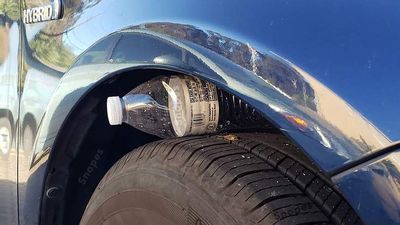
Rating: False
A February 2022 online headline ominously announced that a person should always pour Coke on their wheels when traveling alone. On the internet, there is no shortage of alleged subtle actions people should take to stay safe when traveling alone, but this is one of the most bizarre, as it’s never fully explained how this would keep you safe (or even be noticeable at all). Instead, the headline linked to an article that simply said Coke is a good product for cleaning your tires.
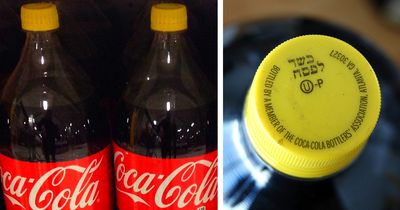
Rating: True
Although many people might not ever encounter one in the wild, Coke bottles with yellow caps do exist and do indeed have a special meaning. These bottles are sold during the Jewish holiday Passover and contain no corn syrup, making them kosher. Coke first began producing kosher drinks in the 1930s, but it wasn’t until the 1990s that the yellow caps first appeared.

Rating: Mixture
During a 2021 news conference, soccer star Cristiano Ronaldo snubbed Coke by moving two bottles out of view and instead opting for a bottle of water. Some online sources alleged that this move cost the company billions of dollars. While the company did see a temporary dip in stock prices after the news conference, it didn’t cause any lasting damage, and Coca-Cola saw overall growth in its stock prices in 2021.

Rating: False
Since the early 2000s, slow cooker recipes involving braising a ham in Coke have been circulating on the internet. However, some sources claim that substituting Diet Coke will actually cause the ham to explode. While making this substitution might affect the overall taste of the dish, there is no actual evidence that using Diet Coke will cause a dangerous reaction. In fact, Coca-Cola actually promotes several recipes that use their zero-calorie drink.
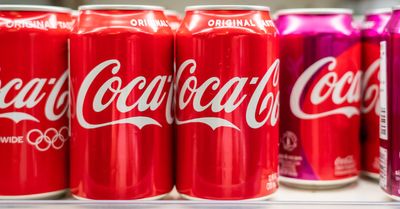
Rating: False
While parasites in pork are a somewhat understandable concern, cases of trichinosis have been dropping since the mid-20th century and can be avoided by cooking pork to a proper internal temperature. However, rumors have circulated that submerging pork in Coke will actually cause these worms to crawl out of the meat, thanks to the caustic ingredients in the drink. This has never been proven to work, and the specific chemicals that cause the alleged reaction have never been named.
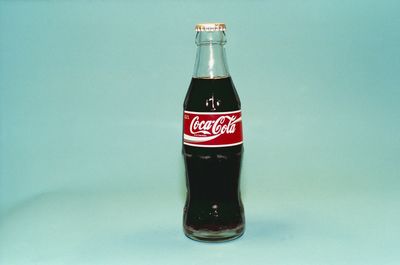
Rating: False
According to legend, Coca-Cola started bottling drinks after a stranger sold the company on the idea. However, according to records, the idea of bottling Coke was already on the company’s mind shortly after its release. They held off on implementing the idea for several years, though, due to health and taste concerns that were common (and understandable) during the early era of bottling products.

Rating: False
According to one early internet rumor, Diet Coke (and other similar diet sodas) actually contain upwards of 40 calories. In order to advertise Diet Coke as zero calories, the company supposedly pays the Food and Drug Administration (FDA) a yearly fine that costs less than the potential sales lost from accurately advertising the drink. However, according to U.S. regulations, it is illegal for companies to list inaccurate calorie accounts, and while they might be fined for these errors, paying the fine does not allow them to continue the false advertisements.
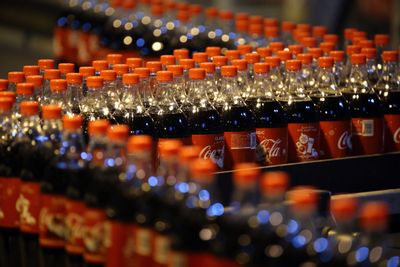
Rating: False
Rumors of a student dying due to drinking too many Cokes first began cropping up around the turn of the 21st century. According to many of the accounts, the carbon dioxide present in Coke dropped the student’s blood-oxygen levels dangerously low. While exposure to high levels of carbon dioxide can cause asphyxiation, ingesting small amounts, as are found in Coke, has been proven to be harmless.

Rating: False
According to one longstanding rumor, a human tooth will dissolve if left in a cup of Coke for long enough. This rumor was even repeated in the U.S. House of Representatives during testimony by researcher Clive M. McCay in 1950. While the sugar and phosphoric acid in Coke can eat away at teeth over time, this outcome is mitigated by the fact that no one is leaving Coke in their mouths for days on end—the corrosive agents are washed away by the saliva in our mouths.

Rating: False
The fact that some people use Coke as a cleaning product often leads to the misconception that, if it’s strong enough to clean household objects, it’s dangerous to drink. Many times, people point specifically to the carbonic acid in Coke being the offending ingredient. While Coke does contain carbonic acid, it’s not particularly strong or dangerous. In fact, carbonic acid is considerably weaker than the gastric acid present in the stomach.

Rating: False
According to a 1985 news report, Harvard researchers discovered that both Coke and Diet Coke functioned as a surprisingly effective spermicide. However, these results have never been able to be replicated by other scientists. In response to news of the research, Coca-Cola put out a public statement that it doesn't recommend its products for any kind of medical use.

Rating: False
Besides the fact that the Coca-Cola Company is a publicly traded corporation, it is simply too massive for any one person or group to own (a mere 1% holding would be worth billions of dollars). As such, its list of owners is quite extensive, but the Church of Jesus Christ of Latter-Day Saints does not appear anywhere on that list.
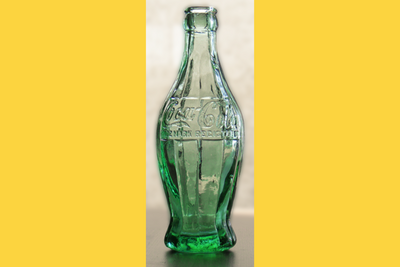
Rating: False
While Coke has, at times, been bottled in green glass bottles, the drink itself has never been any other color than the familiar brown shade we all know. The brown color comes from the presence of caramel and was ideal for hiding any impurities present in the earliest formulations of the drink.
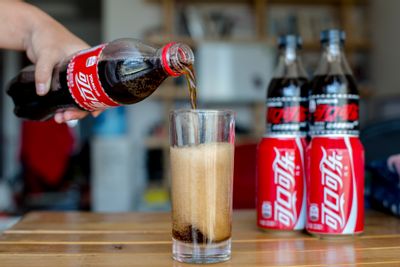
Rating: False
According to legend, Coke syrup was originally intended to be mixed with flat water, not soda water, but thanks to a mix-up at a soda counter, we got the carbonated drink we all still know today. However, according to records, Coke’s creator, John Pemberton, always planned to mix it with soda water, as evidenced by the fact that he sent an assistant to fetch some when there was none in the laboratory.
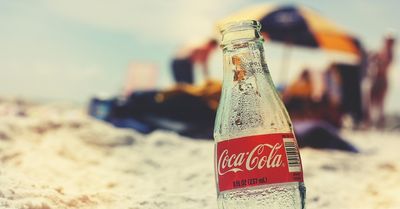
Rating: False
While this idea makes for great marketing on Coke’s part, the idea that only two executives each know half the recipe isn’t exactly true. While only two executives do know the formula, they each know the entire thing. On top of that, there’s no real danger in more people knowing the recipe, as legal obstacles would prevent anyone from attempting to compete with Coke’s formula.
